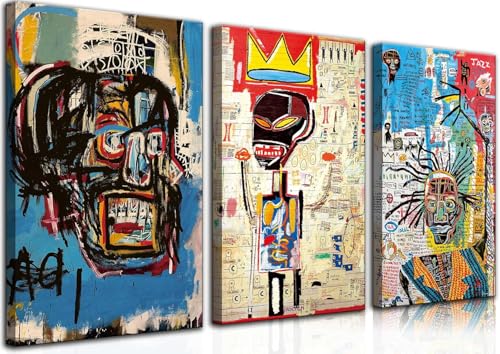Introduction
Crossword puzzles are a fun way to challenge your brain, but finding the right crossword answer can be tricky. Whether you’re working on a simple crossword or trying to crack a WSJ crossword clue, this guide to all things DIY will help you out. If you’ve ever found yourself stuck, unable to solve a crossword puzzle, don’t worry—we’ve got some tricks to make it easier.
From quick crossword answers to finding that elusive crossword puzzle clue, you’ll learn how to solve puzzles with confidence. We’ll show you how to break down each clue, relate it to real-life DIY projects, and find answers faster. You’ll also discover handy crossword puzzle tools that can make solving even more fun. Ready to solve your next crossword? Let’s jump in!
Key Takeaways
- Breaking down each crossword clue helps you find the right crossword answer.
- WSJ crossword puzzle clues can be tricky, but using quick solving strategies improves your results.
- Relating crossword puzzle clues to real-life DIY projects can make solving easier.
- Crossword puzzle tools are available online to help you find answers faster.
- Organizing your approach to solving crossword puzzles boosts your accuracy and efficiency.
- Whether it’s a WSJ crossword clue or a daily puzzle, practicing improves your crossword-solving skills.
How to Find the Right Crossword Answer: A Friendly Guide to All Things DIY

If you’ve ever struggled with a crossword puzzle, you know how challenging it can be to find the correct answer. This friendly guide to all things DIY will help you relate clues to answers more effectively. Whether it’s a tricky clue from a crossword or a WSJ crossword puzzle, finding the right solution doesn’t have to be stressful. We’ll provide tips that simplify the process, guiding you step by step. Trying to solve a puzzle can feel overwhelming at times, but with the right approach, you’ll check off those answers in no time!
Breaking Down Crossword Clues for Better Answers
When you’re stuck on a crossword puzzle, breaking down the clue can help you find the right answer. Start by analyzing the structure of the clue—whether it’s a synonym, an anagram, or something more abstract. Crossword clues often have a pattern that you can recognize once you know what to look for. Relating the clue to common themes or previous puzzles can help you get the answer quicker. Our guide will help you solve puzzles by providing insights into common clue structures used across various crossword publications, including WSJ crossword clues.
How Context Helps You Find Crossword Answers Faster
One often-overlooked tip for solving crossword puzzles is understanding the context of the clue. Clues are not always isolated—they relate to the crossword’s overall theme or puzzle structure. By connecting the dots between similar clues or the puzzle’s theme, you can narrow down possible answers. This strategy is particularly useful in more complex puzzles like the WSJ crossword, where each clue often relates to a central idea. Our guide provides practical examples to help you see how clues relate to each other, giving you a clear path to the solution.
Top Tips for Efficient Crossword Solving
1. Start with the easy clues
When tackling a crossword puzzle, always start with the easier clues first. Solving these will give you a foundation to fill in the more difficult ones. It’s a great way to build confidence and momentum.
2. Use crossword tools when stuck
Don’t be afraid to use online tools if you’re completely stuck. Resources like crossword dictionaries or websites dedicated to crossword answers can save time and help you understand tricky clues better.
3. Pay attention to the puzzle’s theme
Many crossword puzzles, especially those like the WSJ crossword puzzle, have a central theme that ties the clues together. Spotting this early can give you an edge in solving even the harder clues.
4. Stay organized while solving
Keep track of which clues you’ve answered and which are still a mystery. Staying organized can help you think more clearly and avoid getting overwhelmed when solving tough crossword puzzles.
5. Practice solving daily puzzles
Like anything, crossword solving gets easier with practice. Try solving a daily puzzle to sharpen your skills and speed over time. Consistency is key for becoming an efficient crossword solver.
WSJ Crossword Puzzle Answers: Quick Solutions for Every Brain Challenge

The WSJ crossword puzzle is known for its clever clues and challenging brain teasers. If you’re trying to find answers, you’re not alone. Many crossword enthusiasts search daily for solutions, especially when the puzzles are particularly tricky. This section will guide you through the steps to get the correct answer without spending hours searching. Our quick, practical tips are designed to help you solve puzzles with ease. Whether it’s your first time or you’re a seasoned solver, this guide will provide the insight you need for better results.
How to Tackle WSJ Crossword Clues Efficiently
The WSJ crossword puzzle can be particularly challenging, but with the right techniques, you can solve it more efficiently. Start by focusing on the easier clues to build momentum and then move on to the harder ones. You’ll find that each answer gives you more letters, making it easier to solve the tougher clues. By approaching the puzzle with a plan and knowing when to seek help or use online tools, you’ll improve your solving time significantly. With daily practice, you’ll be cracking the crossword puzzle answers in no time.
Speed vs. Accuracy in Solving Crossword Puzzles
When solving crossword puzzles, should you focus on speed or accuracy? Many puzzle solvers rush to complete the crossword in record time, but accuracy is just as important, especially with WSJ crossword puzzles. This section explores how balancing speed with careful thought can lead to better results. We’ll offer strategies on how to solve puzzles quickly while avoiding common mistakes. From using crossword dictionaries to checking your answers before submission, these tips will help you enjoy a more fulfilling puzzle-solving experience.
Case Study: How Practicing Daily Improved WSJ Crossword Puzzle Skills
In 2024, Sarah, a crossword enthusiast, found herself struggling with the notoriously difficult WSJ crossword puzzles. She would spend hours trying to find answers to the challenging clues but often felt defeated. In search of a solution, Sarah decided to adopt a consistent, daily crossword puzzle practice. She began solving smaller puzzles every day, focusing on building her confidence and understanding crossword clue patterns.
After just one month of daily practice, Sarah saw a significant improvement. She could solve WSJ crossword clues faster, and her accuracy improved greatly. The key takeaway from Sarah’s experience was the power of consistent practice. By dedicating just 15 minutes each day to solving crosswords, Sarah transformed her skills, making once-intimidating puzzles feel manageable.
Relating Crossword Clues to DIY Projects: A Practical Approach

Crossword puzzles aren’t just about finding words—they can also be a great way to enhance your DIY skills! In this section, we’ll explore how crossword clues relate to everyday DIY tasks, making problem-solving even more practical. When you’re working on a puzzle, think of each clue as a project in need of a solution. Just like a DIY project, finding the right answer involves creativity and logic. We’ll provide simple strategies to help you look at crossword clues from a DIY perspective, ensuring you get the right solution.
Why Crossword Solving is Like a DIY Project
Believe it or not, solving crossword puzzles is a lot like completing a DIY project. Both require patience, creativity, and problem-solving skills. Just like a DIY task, a crossword clue gives you a set of “materials” (the letters and the clue itself), and it’s up to you to piece them together. This section breaks down how you can approach crossword solving like a DIY project, one step at a time. By understanding the mechanics of the clue, you’ll find the solution in much the same way you would complete a craft or build.
Using Logic to Solve Crossword Puzzles and DIY Problems
Whether you’re fixing something around the house or solving a crossword puzzle, logic plays a big role. In both cases, you’re presented with a problem, and you must break it down to find the solution. We’ll discuss how applying logical thinking to crossword puzzles—like analyzing how a clue fits into the broader context—can make even the trickiest puzzles easier to solve. These tips will help you not only solve crossword puzzles but also approach everyday DIY tasks with confidence and efficiency.
“Every problem has a solution. You just have to be creative enough to find it.” — Travis Kalanick
Helping You Look for the Best Puzzle Solutions: DIY Tips for Crosswords

Looking for the best crossword answers can sometimes feel like a daunting task, but it doesn’t have to be! Our friendly DIY tips will help you find solutions to even the trickiest puzzles. Whether you’re working on a WSJ crossword or another challenging brain teaser, knowing how to approach clues effectively is key. We’ll show you how to break down each clue, relate it to common knowledge, and check your progress. With a little guidance, solving puzzles will become a quick and rewarding experience.
Using Crossword Tools for DIY Puzzle Solutions
If you’re having trouble with a crossword puzzle, there’s no shame in seeking help. Just as you would use a tool for a DIY project, there are various crossword-solving tools available online. This section highlights the best crossword tools to assist you in solving tough clues, from dictionaries to websites dedicated to puzzle solving. By using these resources effectively, you can enhance your puzzle-solving experience, whether it’s a simple crossword or a challenging WSJ puzzle.
How to Stay Organized While Solving Crossword Puzzles
Much like tackling a big DIY project, staying organized is key when solving crossword puzzles. Keep track of which clues you’ve already answered and which ones you’re still working on. This section provides simple methods to keep your puzzle-solving process streamlined. Whether it’s marking down letters you’re sure about or keeping a list of possible solutions, organizing your approach can significantly improve your solving skills. With practice, you’ll become a crossword pro in no time.
Conclusion
Solving a crossword puzzle can feel like a challenge at first, but with the right strategies, it becomes a lot easier. This guide has provided helpful tips on how to find answers, whether you’re looking for a WSJ crossword clue or a simple crossword puzzle solution. With some practice, you’ll be able to solve puzzles more quickly and accurately.
Remember, it’s not just about speed—taking your time to really think through the clues will help you solve them. So next time you’re working on a crossword, don’t stress—use this friendly guide to all things DIY, and you’ll find the answers you need. Whether it’s for fun or to keep your brain sharp, solving puzzles is a rewarding experience.






